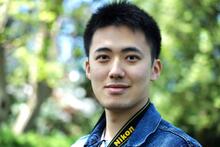Event time:
Thursday, September 22, 2022 - 2:30pm to 3:30pm
Audience:
YQI Researchers
Yale Community
General Public
Location:
YQI Seminar Room
Event description:
Quantum Microwave Engineering for the Protection and Readout of Superconducting Qubits
The engineering of quantum information machines—at the fundamental level—relies on the advancement in the control and measurement techniques of individual quantum coherent systems. In this scientific roadmap, a central challenge has been the reconciliation—in the same physical platform—of two exceptional goals: the protection from decoherence channels of pure quantum states, and their accurate and efficient readout using macroscopic measurement apparatuses, which appear to be demanding opposite experimental conditions with respect to the accessibility of quantum information from the external environment.
Can near-ideal measurement be achieved in artificial quantum systems without the sacrifice of their coherence properties? This dissertation addresses this question in superconducting Josephson circuits by presenting the positive outcomes of two single-qubit experiments: First, the dephasing time of a transmon qubit embedded in the three-dimensional (3D) circuit quantum electrodynamics (QED) architecture can be reproducibly increased owing to a new type of microwave cavity attenuator that can effectively reduce the residual thermal photon population in the readout mode. Second, intra-cavity quantum readout signals in the 3D circuit QED system can be amplified by a weakly nonlinear Josephson-junction-array oscillator quadratically coupled to the transmon qubit; this two-step dispersive readout scheme meanwhile demonstrates a suppression of the photon-induced qubit relaxation effect, and therefore indicates a high quantum nondemolition fidelity with more than 100 microwave photons in the 3D readout cavity.
The compatibility of these two inventions—the cold cavity attenuator and the Π-mon artificial molecule—suggests a promising experimental direction of integrating extra-cavity dissipation and intra-cavity amplification to simultaneously realize high-coherence superconducting qubits and their high-performance quantum-limited readout, which will be instrumental in implementing scalable, fault-tolerant quantum networks and advancing the state-of-the-art knowledge of fundamental quantum physics.
